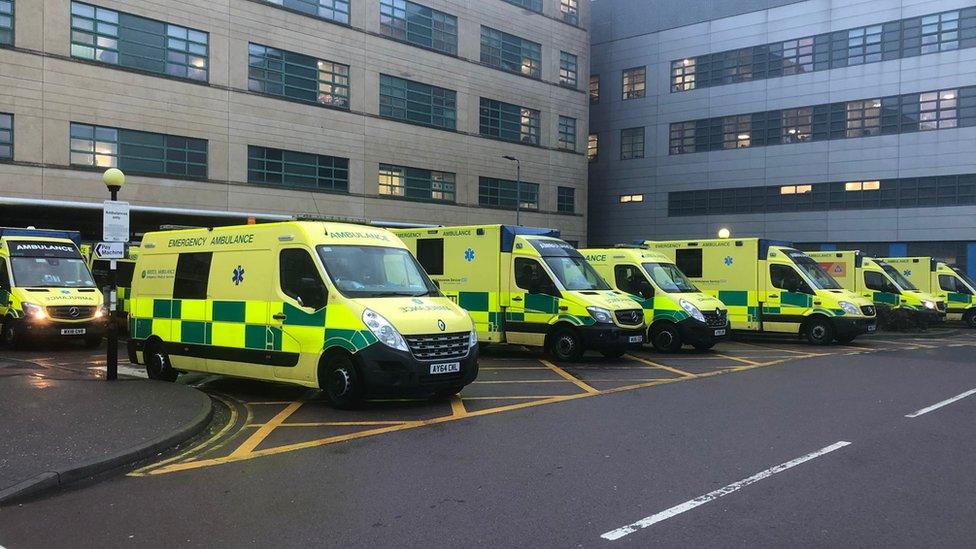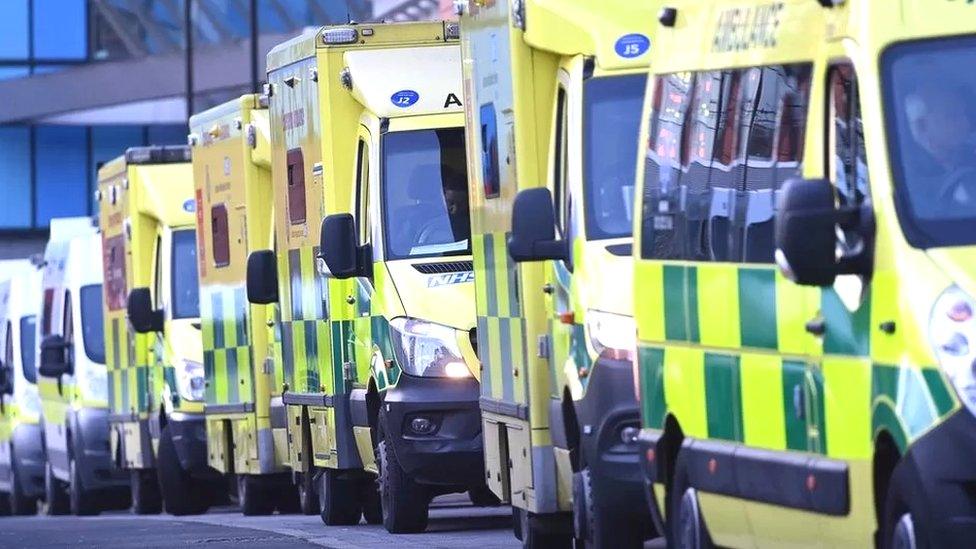South Western Ambulance Service plans to cut staff breaks
- Published

South Western Ambulance Service have asked people to think twice before calling 999
An ambulance service is at loggerheads with union bosses over a plan to reduce break times for crews on long shifts.
South Western Ambulance Service has acted after saying patients wait too long for an ambulance and response times must improve.
But Connor Calby, a paramedic and Unison rep, said just one 45-minute break during 10 to 12 hour shifts would be detrimental for patients.
"It will mean they are actually getting crews that are more tired," he said.
In the south-west of England, response times to patients calling 999 are among the worst in the country.
To tackle this, the ambulance service wants its crews - who are currently on a one-hour break on day shifts and two 30-minute breaks on night shifts - to move to the single 45-minute break.
Fear of collisions
South Western Ambulance Service NHS Foundation Trust (SWASFT) said the changes would help them respond to more patients, more quickly.
However Mr Calby, who is based in Bridgwater, said union members were "overwhelmingly against the proposals".
"The fear is essentially that this will cause things like more driving collisions because people will be driving more tired," he said.
"These are vehicles being driven at high speeds in emergency driving conditions by very experienced drivers who shouldn't be driving fatigued.
"It feels like now's not the right time to be doing this. We've got to bear in mind these are people who've had two-and-a-half years working flat out through Covid."
A SWASFT spokesperson said the trust's priority was "our people and patients".
"As an employer, we take our responsibility seriously to ensure they receive their entitled rest break in a timely manner, and finish their shift on time so they can get home to their family and friends," they said.
"Every day we balance the wellbeing of our people with patient safety. We recognise that within this challenging environment, we need to improve our existing arrangements," they added.

Follow BBC West on Facebook, external, Twitter, external and Instagram, external. Send your story ideas to: bristol@bbc.co.uk , external
Related topics
- Published13 March 2023

- Published6 March 2023

- Published28 December 2022
